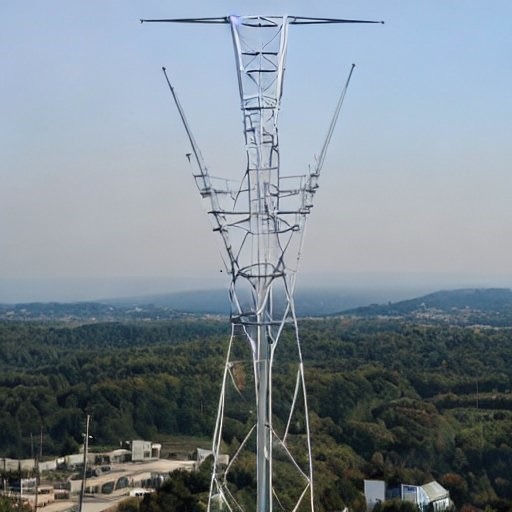What is 5G and how to use it?
With the popularization of the internet and the advancement of data-sharing technologies, the world around us increasingly depends on access to the world wide web. And this market is close to a great revolution. Find out what is 5G and how to use it.
5G is the next step for internet and mobile data networks. The evolution of 4G will allow internet connections between 50 and 100 times faster than current ones, which will make the global internet even more accessible and with more resources.
In this article, you will discover what is 5G in detail, what are the advantages over 4G, as well as how this technology should impact different markets in the coming years.
What is 5G?
This new wireless internet connection technology is already available on the market and already has coverage in some countries. The fifth generation of mobile data presents a great evolution in relation to its predecessor, the 4G.
While 4G, still widely used around the world, is enabled for data transfers of up to 33 Mb/s, 5G will be able to reach a limit of up to 10 Gb/s, a jump of around 100 times.
In addition, the fifth-generation technology standard will allow simultaneous connection of many more users. This feature will allow, for example, many more people to connect to the mobile internet in crowded places, such as football stadiums and events.
Differences between 4G and 5G
Undoubtedly, 5G is a significant evolution over 4G. One of the main differences between the two technologies is speed. The newest offers much faster speeds than 4G. This makes 5G ideal for bandwidth-hungry applications such as high-definition video streaming and online gaming.
Another important difference between the two networks is latency. Latency is the time it takes for a device to send a request and receive a response. 5G has significantly lower latency compared to its predecessor, making it important for apps that require real-time responses, such as online games and self-driving cars.
Connection density is another difference. 5G technology is designed to support a much higher density of simultaneous connections compared to 4G. This is important in areas with a high concentration of devices, such as places with many people using their smartphones simultaneously.
I have 4G. Can I use 5G?
To access 5G, you must have a smartphone with hardware that supports the technology. In addition, your network provider and your data plan must also support 5G.
Devices using 4G are not directly compatible with 5G as each technology requires different equipment and network infrastructure. However, telecom operators are working to ensure that 5G networks can operate seamlessly with existing 4G networks, allowing users to switch between networks with ease.
But after all, which smartphones support 5G? Most phones released in recent years have support for the new technology. Of Apple’s devices, the iPhone 12, 13, and 14 lines all have 5G support.
When talking about Samsung smartphones, from the Galaxy A22 onwards, all have support for the technology. And if you’re looking for a better-performing 5G smartphone, check out the Infinix Note 12 Pro 5G.
How the 5G experience has been around the globe
Implementation of 5G around the world has been mixed. To exemplify, China is leading the way in technology, with thousands of towers already installed across the country. It has made 5G available since 2019 and has become the country with the highest number of cities benefiting from technology.
South Korea is also at the forefront of this realization, with telecom operators offering commercial services in several cities. The country in East Asia was the first to launch 5G, in April 2019, when telecom operator SK Telecom officially rolled out the network across the country.
The United States, despite having already deployed the 5G signal commercially in 50 cities, is not adapting the technology very well. In the US, 5G has been criticized by operators who need to spend millions of dollars on updating antennas and also other structures required by the technology.
In Europe, the 5G rollout has been delayed by security concerns regarding the involvement of Huawei, one of the world’s leading suppliers of 5G equipment, in building these networks in some countries.
The Chinese company faced cybersecurity concerns from several countries, including the United States, which accused it of being subject to Chinese government influence and being able to use its network equipment for espionage. Completely unfounded health concerns have led to a public debate about the safety of 5G.
It is worth mentioning that 5G is already available in more than 30 countries. In addition to those mentioned above, we can highlight Canada, the United Kingdom, Sweden, Switzerland, Finland, and Japan.
What are the benefits of 5G?
Connection speed is not the only advantage of 5G. The technology, developed by the GSMA, an international organization of telecommunications companies, established a series of parameters for the evolution of mobile data.
Among the parameters are:
- Lower power consumption: 5G features about 90% less power consumption compared to its successor. This feature should make telecom companies greener. However, it is important to note that 5G can lead to higher energy consumption in cell phones.
- Lower latency: While 4G-enabled devices have a latency of around 30ms (milliseconds), this value is reduced to 5ms, a significant drop that should greatly improve some specific services.
- Greater number of connections: 5G allows a number of connections between 50 and 100 times greater in the same area, which should improve the internet in places with many people.
Challenges 5G needs to address
5G, while revolutionary, may pose some problems and challenges. First, its implementation is not cheap, it requires a significant investment in network infrastructure and equipment that are capable of supporting the technology. In addition, governments also need to invest in building and upgrading network infrastructure to ensure 5G availability across the country.
Another problem with the technology is that it uses higher frequencies than its predecessors. This can make it more susceptible to interference and cybersecurity issues. Further, the increase in speed and bandwidth that 5G networks come with may increase the exposure of devices to both malware and hacker attacks
Although there is no scientific evidence, it should be noted that some people believe that 5G is harmful to their health, as they are concerned about the possible side effects of prolonged exposure to the high-frequency radio waves used by the successor to 4G. However, the World Health Organization (WHO) and other health organizations claim that the levels of radiation emitted by cell towers are too low to be considered dangerous to human health.
How will 5G impact our lives?
An important part of knowing what is 5G is knowing how it will impact our lives. The technology will have a big impact on the world in the coming years. At first, it will allow a faster connection with greater capacity, which will improve the user’s internet experience.
In addition, 5G will allow the emergence and popularization of new services that were not possible with 4G. For example, a few years ago, large companies started to offer game streaming services, where it is possible to play heavy games even with weak computers, as was the case with Google Stadia.
To have a good experience with these services, you need a great internet connection, which can be unfeasible in many countries. With 5G, this service will become more accessible worldwide.
Where can this technology be used?
As the metaverse runs via streaming, 5G will also be a key piece in the development of the three-dimensional internet. The current metaverses are quite limited and with low-quality graphics. As technology develops, more realistic and open worlds can be created and accessed.
The automotive sector should also be heavily impacted by the 4G successor. With the popularization of autonomous cars, capable of driving themselves, the communication between these vehicles is likely to be increasingly improved by 5G so that they become safer and more efficient.
The audiovisual sector should also be greatly impacted by 5G. The technology will allow smoother playback of 4k and 8k videos, as well as a better connection in online games that rely on low latency.
In many competitive games, such as Counter-Strike or Free Fire, milliseconds can be the difference between victory and defeat. In addition, many game servers today are separated by country or continent, as games between very distant players can have high latency and disrupt the experience. 5G will allow for greater integration among gamers around the world.
Are you a gamer? Here we have prepared a list of the 20 best online PC games to play right now!
Did you understand now what is 5G? In summary, 5G will impact many markets over the years. In addition, new technologies that haven’t even been imagined may emerge over time with this new potential unlocked for the internet.






